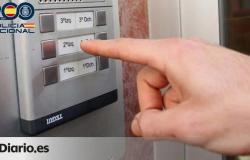A proposal for the creation of a carbon market and a provincial gas inventory greenhouse effect reached the Legislature hand in hand with the Neuquén Popular Movement block. The idea is to move forward so that development is sustainable. In this context, it is proposed that Vaca Muerta’s activity be part of this program to reduce the carbon footprint.
The Emepenist bloc presented the initiative that seeks to reduce the carbon footprint. The project has twelve chapters in total, which describe what the bill consists of. The creation of the provincial greenhouse gas inventory and carbon market, in Neuquén, It is proposed in accordance with the international treaties that are ratified in the country.
It will be a tool that, as the legislators explained, will allow Neuquén to implement actions to reduce the effects of climate change. The aim is to reduce the carbon footprint and promote sustainable development.
To support the proposal, deputy Claudio Domínguez described that the project seeks to ensure that Neuquén is in line with the commitments assumed by Argentina, at the international level such as the Paris Agreement and the Kyoto Protocol.
“Since the Vaca Muerta phenomenon, Neuquén is a lighthouse in terms of energy, and it should also be a lighthouse in terms of promoting sustainable development,” he stressed. The idea is that there is a coherent and effective regulatory framework for measuring and reducing emissions and thus Neuquén demonstrates its commitment to the global climate agenda and collaborate in the fight against climate change.
Regarding the gas inventory, it will be in charge of the Ministry of the Environment. This record will specify the volume of emissions and absorptions of these gases in the provincial territory, attributable to human activity, and this will be done to try to remedy them.
It was specified that this inventory already exists at the national level, with biannual measurements being carried out. If the law is approved, the province must identify the main emitting sectors, and the total emissions values per inhabitant and per area of the provincial economy will be determined.
At the same time, control tools will be determined to meet emissions mitigation goals, and monitor the temporal evolution of greenhouse gas emissions.
Deputy Domínguez explained that the carbon market is a system that works worldwide, both in a regulated and voluntary manner. It is designed to trade greenhouse gas emission rights. «Its objective is to encourage the reduction of emissions through market mechanisms. A price is established for carbon and companies, organizations or countries can buy and sell emission permits,” he described.
Lawmakers maintain that this is an effective instrument to mitigate greenhouse gas emissions. Domínguez explained that the carbon market will provide the possibility of accessing financing for emissions reduction projects, both at the government and private levels.
Finally, the proposal includes the creation of a mitigation fund, to be established with the amounts of fines applied to activities that emit greenhouse gases and fail to comply with the evaluation and certification procedure or exceed the permitted limit. Together with the 10 legislators of the MPN bloc, the proposal was signed by the Juntos deputy, Carina Riccomini, and by the representatives of Hacemos Neuquén, Guillermo Monzani and Cecilia Papa.







